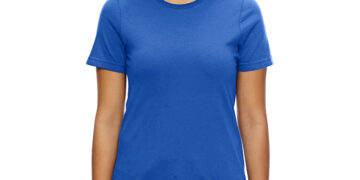Are you fed up with attempting every diet known to man only to end up back where you started? Are you struggling to lose weight and wondering what you’re doing wrong? Look no further. The key to a successful weight loss journey lies in your diet. While exercise plays an important role, what you put into your body is just as vital. Healthy dietary choices can help you shed and keep those pounds off.
But determining where to begin can be challenging, given the amount of contradictory information available. That’s where I come in. As a copywriter and digital marketing expert, I’ve worked with countless clients to create compelling content on weight loss and nutrition. In this article, I’ll share my top tips for fueling your weight loss journey through a balanced and nutritious diet. So buckle up, grab a healthy snack, and get started.
Importance of a Healthy Diet in Weight Loss
There is no magic drug or fast fix for losing weight. The key is creating a calorie deficit or spending more calories than you take in. While exercise can help you burn those extra calories, it’s important to remember that you can’t out-exercise a bad diet. A healthy diet is so crucial in achieving your weight loss goals.
A healthy diet consists of nutrient-dense foods that give your body the energy to function correctly. These foods include lean protein, whole grains, fruits, and vegetables. In addition, these foods can aid in fat loss and the development of skeletal muscle structure in your body.
One of its most important advantages is feeling fuller for longer on a healthful diet. As a result, you’ll be less likely to undermine your efforts to lose weight by eating unhealthy snacks throughout the day. A healthy diet can also help you feel better overall and lower your chance of developing chronic illnesses like diabetes and heart disease.
Understanding Calorie Intake and Portion Control
To create a calorie deficit, you must be conscious of how many calories you consume and burn daily. This means understanding your calorie intake and portion control. While it can be tempting to skip meals or drastically reduce your calorie intake, this can be counterproductive to your weight loss goals.
Instead, consume moderate calories appropriate for your age, gender, weight, and activity level. You can use online calculators to estimate your daily caloric requirements, but remember that these are only estimates. It’s essential to listen to your body and adjust your calorie intake accordingly.
Portion control is also essential in managing your calorie intake. If you consume too much of something, even healthy foods can be high in calories. As a general guideline, aim to have half of your plate comprised of fruits and veggies, one-quarter of lean protein, and one-fourth of whole grains. It will help ensure you get a balanced and nutritious meal without overeating.
Tips for Creating a Healthy Meal Plan
- Creating a healthy meal plan can be daunting, but it doesn’t have to be. With some planning and preparation, you can set yourself up for success on your weight loss journey. Here are some tips for creating a healthy meal plan:
- Plan your meals: Plan your meals for the entire week at the outset. By doing this, you’ll be able to resist the temptation of unhealthy takeout or fast cuisine.
- Shop for healthy ingredients: Make a grocery list of nutritious meal ingredients. Stick to the grocery store’s perimeter, where the fresh produce, lean protein, and whole grains are typically located.
- Meal prep: Spend a few hours prepping your weekly meals on the weekend. This can include chopping vegetables, cooking lean protein, and portioning snacks.
- Experiment with new recipes: Eating healthy doesn’t have to be boring. Look for new recipes that incorporate healthy ingredients and flavours you enjoy.
- Please don’t be too hard on yourself: Remember that it’s okay to indulge in your favourite foods occasionally. The key is to practice moderation and balance.
Importance of Hydration in Weight Loss
While diet and exercise are the most critical factors in weight loss, hydration is often overlooked. Yet, drinking enough water is essential for maintaining a healthy weight and promoting weight loss. When dehydrated, your body can mistake thirst for hunger, leading you to overeat. Water can also help speed up your metabolism and increase your calories throughout the day.
Drink at least 8 to 10 cups of water daily, and more if you’re active or living somewhere hot. It helps in your weight loss and weight management.
If you find it difficult to drink plain water, try infusing it with fresh fruit or herbs for a refreshing and flavorful twist. Also, avoid sugary drinks such as soda and juice, which can be high in calories and contribute to weight gain.
Foods to Eat While on a Diet
While you can certainly lose weight by eating healthy foods like fruits, vegetables, whole grains, and lean proteins, many dieters want to know what foods help with weight loss. The following foods are best for your waistline:
- Oatmeal: Oats are known as a low-glycemic index food. It can help keep blood sugar levels stable and the energy steady throughout the day. Oatmeal is also rich in soluble fibre.
- Protein: Eating protein can help build muscle, which increases your overall metabolism. Protein is also a satiating macronutrient.
- Green tea: Green tea is rich in antioxidants, which can help you lose weight. It’s believed to increase the body’s fat-burning abilities and the rate of calorie and fat burning.
- Coffee: While many studies have shown that coffee may help with weight loss, it still needs to be clarified why. One possible reason is that coffee may speed up your metabolism slightly.
Conclusion
In conclusion, achieving your weight loss goals is about creating a calorie deficit through a healthy diet and regular exercise. By understanding your calorie intake, practising portion control, and creating a healthy meal plan, you can set yourself up for success. Additionally, remember the importance of hydration in promoting weight loss. With these tips, you can fuel your weight loss journey and achieve desired results. You can also take weight loss counselling in Doha to understand your weight better.









